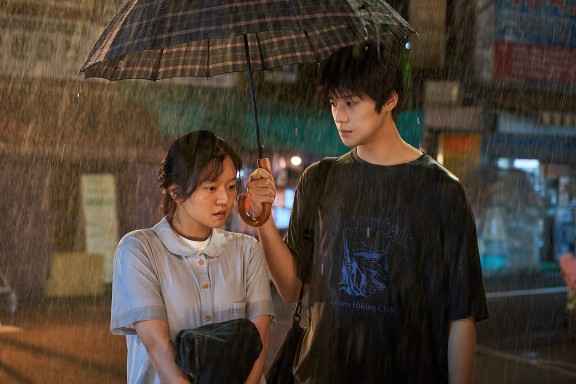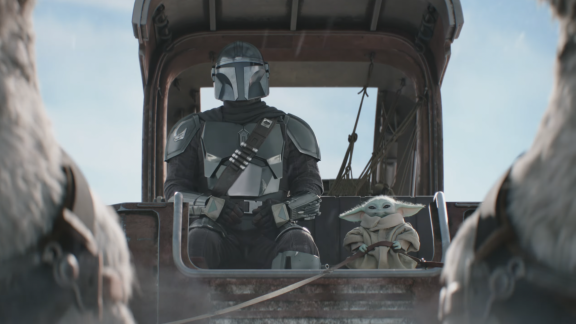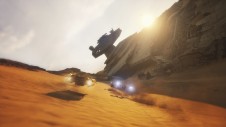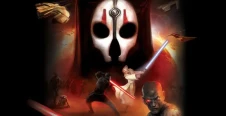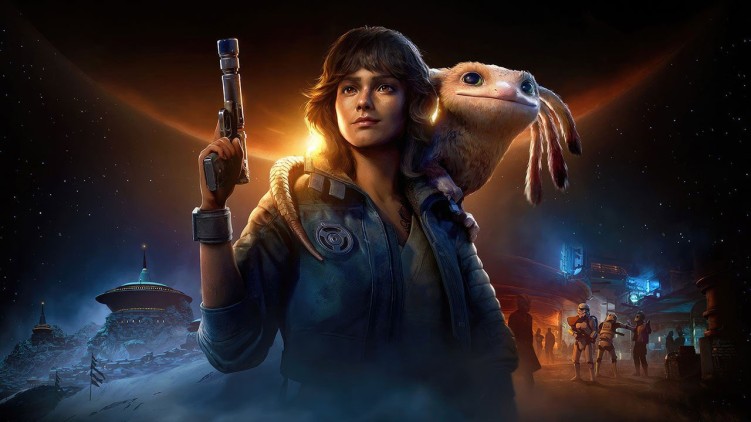
Despite high expectations for one of 2024’s major video game releases, Star Wars Outlaws, developed by Ubisoft’s Massive Entertainment, has not met the sales goals set by its publisher. Launched on August 31, 2024, the open-world action-adventure title, set in the iconic Star Wars universe, sold approximately one million units by October, a figure deemed underwhelming given the game’s massive marketing budget—the largest in Ubisoft’s history. Despite hopes for the first open-world Star Wars game, its “softer than expected” launch led to a significant drop in Ubisoft’s share value, marking the lowest in a decade. The game’s lukewarm reception has sparked discussion, with Ubisoft CEO Yves Guillemot pointing to an unexpected factor: the Star Wars brand itself.
During a recent shareholder meeting (via IGN), Guillemot addressed pointed questions about Star Wars Outlaws’ commercial performance. He acknowledged that the game “didn’t reach our sales targets” and attributed its struggles to a combination of factors, with the state of the Star Wars franchise being a primary concern. “The game suffered from a number of items,” Guillemot stated. “First, it suffered from the fact that it was released at a time when the brand that it belonged to was in a bit of choppy waters.” This comment has raised eyebrows, as it shifts focus from the game’s own issues to broader challenges facing the Star Wars intellectual property (IP). Guillemot’s remarks suggest that the franchise’s recent struggles, including mixed reception to projects like Star Wars: The Rise of Skywalker and lower-than-expected viewership for Disney+ series such as The Book of Boba Fett and The Acolyte, created an unfavorable environment for Star Wars Outlaws to thrive.
The Star Wars brand, long considered a cultural juggernaut, has indeed faced turbulence in recent years. The sequel trilogy, particularly The Rise of Skywalker, received divisive feedback, with critics and audiences split over its narrative choices. Meanwhile, Disney+ spin-offs have struggled to replicate the universal acclaim of shows like The Mandalorian. Guillemot’s argument hinges on the idea that this uneven reception diluted the franchise’s appeal, making it harder for Star Wars Outlaws to capture the enthusiasm of both casual gamers and die-hard fans. The timing of the game’s release, coinciding with a period of perceived Star Wars fatigue, may have dampened its potential, according to the CEO.
However, Guillemot’s focus on the Star Wars brand as a primary reason for the game’s underperformance has drawn scrutiny for sidestepping internal issues with Star Wars Outlaws itself. Technical issues plagued the game’s early days, with players reporting glitches and unpolished mechanics that hindered the experience. Ubisoft responded swiftly, implementing a series of updates to address these problems, but the initial damage to the game’s reputation may have impacted word-of-mouth and sales momentum. Guillemot acknowledged these technical shortcomings, noting that the game “had a few items that still needed to be polished, and they were polished and debugged in the early weeks, but it did affect sales volumes.”
Beyond technical issues, Star Wars Outlaws faced challenges in carving out a distinct identity. Unlike Respawn Entertainment’s Star Wars Jedi: Survivor, which capitalized on the popularity of lightsaber-wielding protagonists and a souls-like gameplay style to achieve commercial success in 2023, Star Wars Outlaws took a different approach. The game cast players as Kay Vess, a non-Force-using smuggler navigating the galaxy’s criminal underworld. While this premise promised a fresh perspective, some critics argued that the game leaned too heavily on familiar Ubisoft open-world tropes, such as repetitive side missions and a faction system that felt underdeveloped. The absence of iconic Star Wars elements like Jedi or lightsabers may have also limited its appeal to fans expecting a more traditional Star Wars experience.
Despite its struggles, Ubisoft remains committed to Star Wars Outlaws. The game is set to launch on the Nintendo Switch 2 on September 4, 2025, with a “new version” that incorporates the improvements made through post-launch patches. Guillemot expressed optimism about its potential on the new platform, suggesting that the polished version could attract a fresh audience. Additionally, the game has received two story expansions, including A Pirate’s Fortune, which pays homage to the beloved Star Wars character Hondo Ohnaka, signaling Ubisoft’s intent to continue supporting the title.
Guillemot’s comments also reflect broader challenges within Ubisoft’s portfolio. The company has faced criticism for its repetitive open-world formula, seen in franchises like Assassin’s Creed and Far Cry, which some argue has led to player fatigue. Star Wars Outlaws was positioned as a departure from this formula, aiming for a “smaller, richer world” rather than the sprawling, icon-heavy maps of past Ubisoft titles. Yet, the game’s launch issues and the weight of expectations tied to both the Ubisoft and Star Wars brands may have hindered its ability to stand out.
As the gaming industry grapples with rising development costs and heightened player expectations, Star Wars Outlaws serves as a case study in the complexities of leveraging a powerhouse IP. While Guillemot’s assertion that the Star Wars brand’s “choppy waters” contributed to the game’s struggles holds some merit, the evidence suggests a more nuanced picture. The success of other recent Star Wars titles, like Star Wars Jedi: Survivor and the resurgence of Star Wars Battlefront II, indicates that the franchise remains a potent draw when executed well. For Star Wars Outlaws, a combination of technical missteps, a polarizing protagonist, and an oversaturated market may have played a larger role than the state of the Star Wars brand alone. As Ubisoft looks to the future, the lessons from Star Wars Outlaws’ launch will likely shape its approach to both its own brand and its handling of licensed IPs.
Source: IGN
